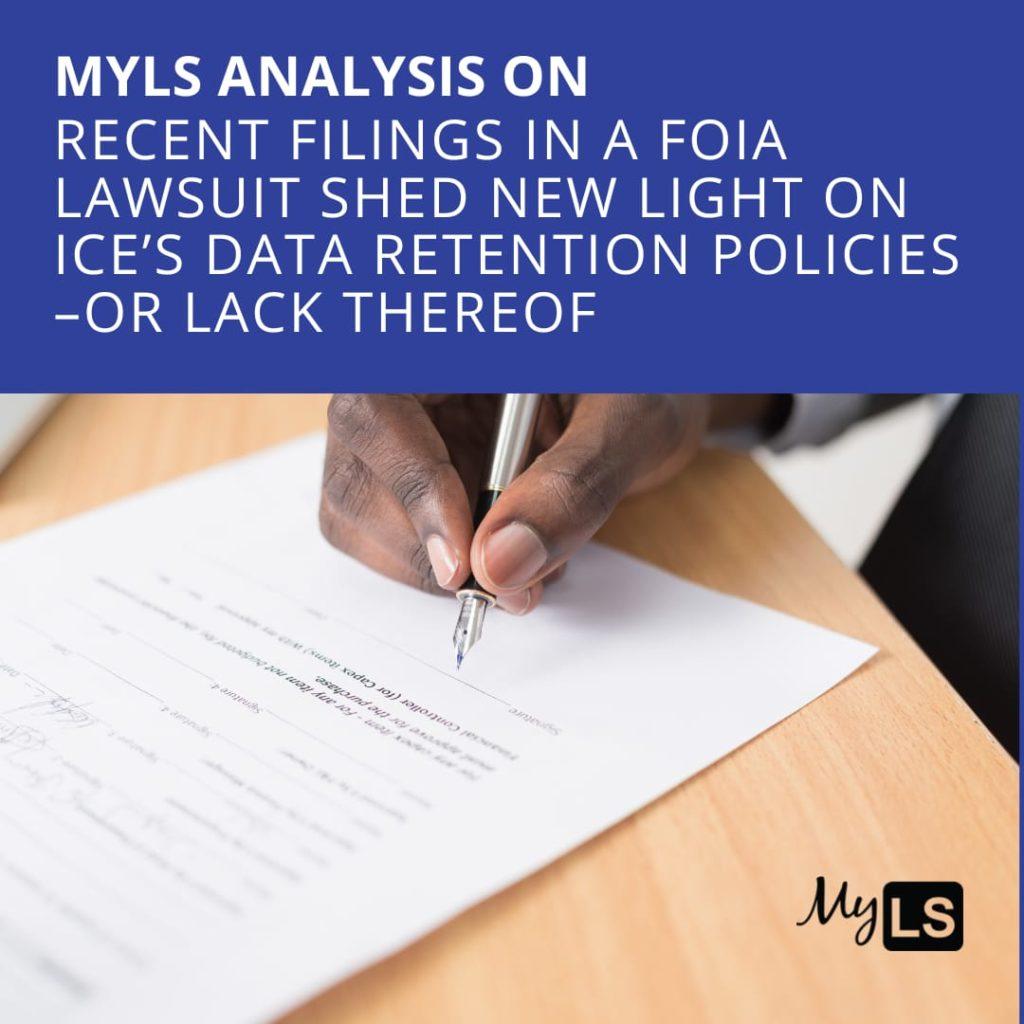ICE’s Data Retention Policies
In 2021, the American Civil Liberties Union filed a lawsuit against the Department of Homeland Security’s Immigration and Customs Enforcement (“ICE”) to compel the release of records related to its unprecedented decision to pursue the indictment of a Massachusetts state judge for assisting an undocumented immigrant to evade arrest by ICE.
In April of 2018, the Massachusetts judge had helped an undocumented immigrant evade detention by an ICE officer who was waiting for him outside her courtroom. According to filings in the ACLU’s lawsuit, then active director of ICE, Thomas Homan, began discussing the possibility of the judge’s indictment that day. The following year, the U.S. Attorney for the District of Massachusetts charged the judge with obstruction of justice and conspiracy to obstruct justice. Several legal academics and former judges criticized the prosecution as a politically motivated threat to federalism and judicial immunity. Because of its unprecedented nature, the ACLU filed a FOIA request seeking ICE records related to the decision to pursue it.
The lawsuit that resulted has shed considerable light on ICE’s record retention and deletion practices. The filings and testimony revealed, for example, that during the Trump administration, ICE did not merely neglect to preserve records kept, for example, on former ICE officials’ mobile phones, but had a policy of destroying all data stored on them. ICE even distributed an “iOS Device Data Wiping Quick Reference Guide” to provide step-by-step instructions for destroying all of the data stored on their devices before returning them to their supervisors.
While ICE insisted that it lacks the infrastructure needed to store all of the data held on its employees’ mobile devices and that the data destruction is standard practice, the ACLU argues that much of the data destruction occurred after ICE’s Office of the Principal Legal Advisor had ruled that ICE had a duty to preserve any records that were responsive to the FOIA suit. Moreover, the ACLU claims that some of the data destruction took place, not in the ordinary course of agency business, but years after the former employees had left ICE.
If true, the ACLU’s allegations provide a troubling picture of a federal agency in which transparency and accountability are abjured, often because of policies that are set at the top of its hierarchy.










